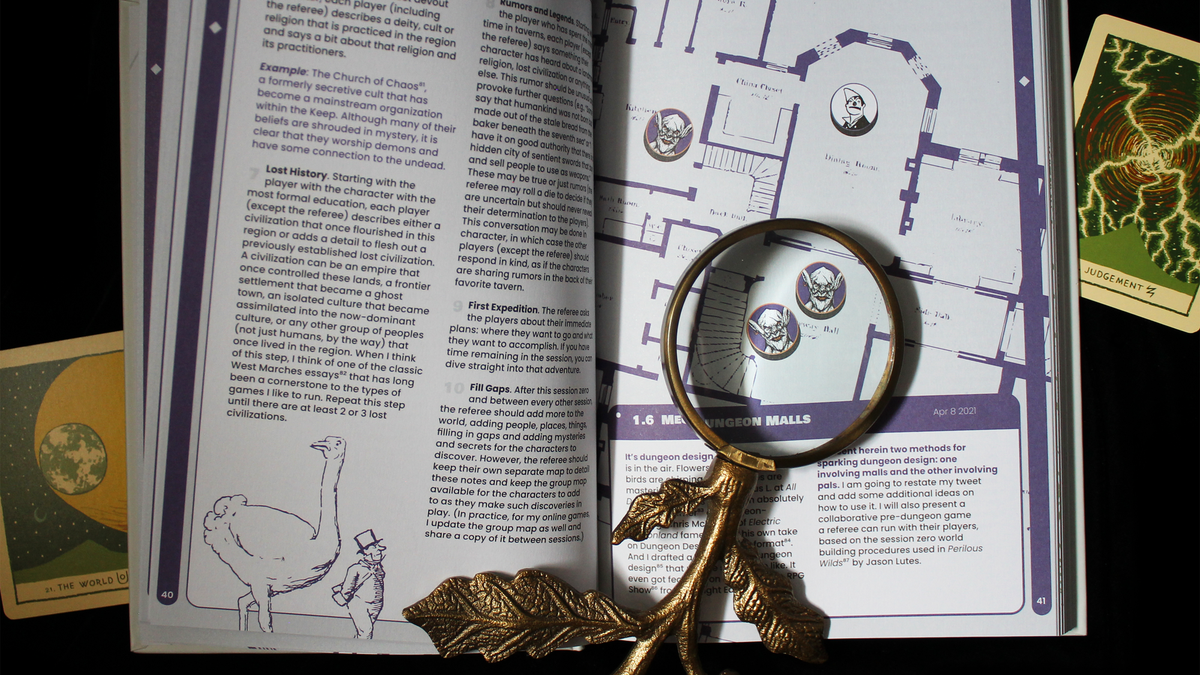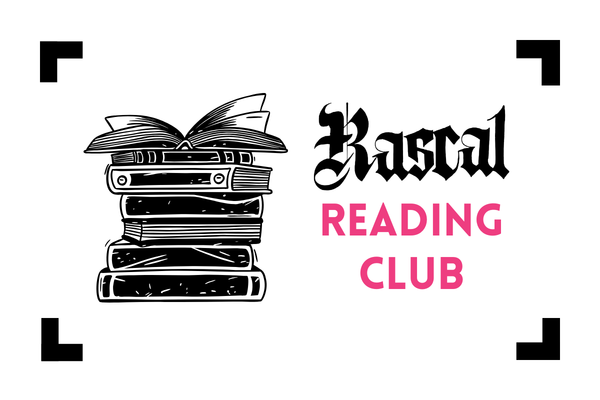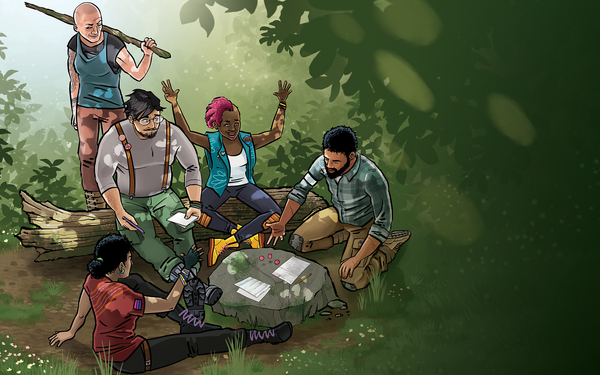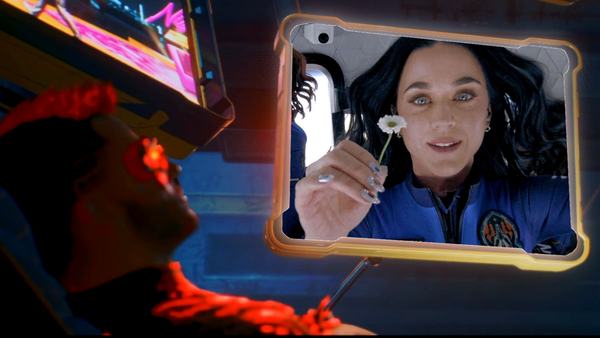Blog to the future: Safeguarding Wisdom for future sickos
Prismatic Wasteland’s blog-to-book transformation is, in part, defiance against entropy.

W.F. Smith calls himself a blogger, first and foremost. His games — Barkeep on the Borderland and a couple of tri-fold adventures — aren’t incidental creations, but they are secondary to Smith’s inclination to put words on a page and share them with anyone willing to read. I can empathize.
Prismatic Wasteland, Smith’s digital shopfront, began in 2020 as a repository for play reports chronicling a game of The Ultraviolet Grasslands and gradually expanded into a magpie’s nest of game design musings, random tables, shitposts, and commentary. This is common for post-OSR bloggers, a thriving ecosystem of tinkerers and typers in which Smith comfortably rests. Prismatic Wasteland has now been transmuted into a hardcover book containing a curated selection of 35 blogposts, published by Games Omnivorous.
This, too, is common for the post-OSR blogger. Smith mentions that Prismatic Wisdom was directly inspired by Patrick Stuart’s Speak, False Machine, a 650-page blunt weapon of words collected in the meat realm, at least partially because the internet’s posterity could not be guaranteed. Smith isn’t so much of a digital doomer, but his conversation with Rascal conveyed an unmistakable strain of realism when discussing the perils of so much information living online. That, and a gleeful preference for physical media.
Why not print your blogs for the blessedly offline? Don’t they, too, deserve to read about hexcrawls, spell lists, and discourse? But it’s a tricky process to look back on a version of yourself collated and broadcast through webhosted text. You might understandably be tempted to edit history during the process of reproduction, excising the warts and sanding down uncomfortable spurs. To present our past in the cleanest light. Prismatic Wisdom is not that, Smith told me. It’s sicko shit, warts and all.
In between this interview taking place and being published, Smith won two Silver ENNIE awards for best online content (Prismatic Wasteland) and best RPG related product (Prismatic Wisdom).
This interview has been edited for clarity.
Smith makes a quick, slime-covered manifesto for more books like Prismatic Wisdom during his ENNIE win speech.
Chase Taylor-Carter: What inspired you to transform Prismatic Wasteland’s best blogs into a book?
W.F. Smith: It always was something that I would like to do, even before Games Omnivorous contacted me. I had definitely thought about it because not everything in my blog is worthy of cutting down a tree, but I do think that some of it is worthy of cutting down a couple trees... Terrible way to think about it. Mostly, it's that I prefer to read physical things. I am a Kickstarter whale; I back so many things. You can see a billion books behind me. I'll get the email [saying] your digital copy is here. And I'm like, great, maybe I'll save that on my hard drive, and it'll collect digital dust. Unless I need to ctrl+F something, I read everything physically. For instance, I've played Mythic Bastionland, but I've not read it because the physical copy is still on its way to me.
I'm getting people saying they've never heard of my blog but are reading my stuff for the first time in this book. So, in a way it’s an accessibility thing as well. It's a similar project to Blogs on Tape, where my blogs have been recorded a number of times. A lot of us read screens all day for work, and it is tiring and feels like work in a way that listening to a podcast might not, in a way that reading physically printed stuff may not. There's some things you can do with a book format, like the layout, that you can't easily do online. There's stuff that's lost too, but it's a different medium and presents new opportunities.
Taylor-Carter: What made you into a physical format adherent?
Smith: I'm 31, so I came of age before the real proliferation of the internet rotting our brains. It was rotting my brain, but just not 24/7. Part-time rotting the brain. My day job is a lot of reading physical books, but then once you actually start working, it's mostly being in Google Docs and responding to emails — looking at a screen. A big part of it is like Severance, compartmentalizing myself to complete the screen stuff. Even when I'm in a word processor writing an adventure, it has a tinge of work to me.
Print is kind of a respite from the online world. In terms of reading a blog post on my phone or on my laptop, if I'm doing that, I'm still getting notifications. I'm getting pings. I don't think they've developed paper, yet, that can put a notification on your page, so nothing's really distracting me.
Taylor-Carter: What do you think is gained or lost whenever you transmit blogs from a screen to the printed page?
Smith: Are you familiar with the concept of Veblen goods? It's an economic concept. Basically, the idea is that if you're giving away something for free, people basically think it's worthless. If you make them pay for it, they're like, oh, wow, this is great. No moral judgments on that. I think that's maybe just an innate part of human psychology. So, whenever you're posting things on a blog, there is a quality people assign to it. This guy is just doing this for free. This is kind of his hobby writing. Which is all true, but once you present the exact same material in a different light and make people pay for it, it expands the audience to those who are willing to pay money to read something.
"Maybe late stage capitalism will go chugging along forever because it's hard to imagine a future where that's not the case. As a contingency, I can always have this [book]."
There's way more people who are like, I'd read this for free but I'm not willing to pay money. But there's definitely people who are the exact opposite and are not willing to read my blog post for free but are willing to pay me money. So, that's something that's gained.





